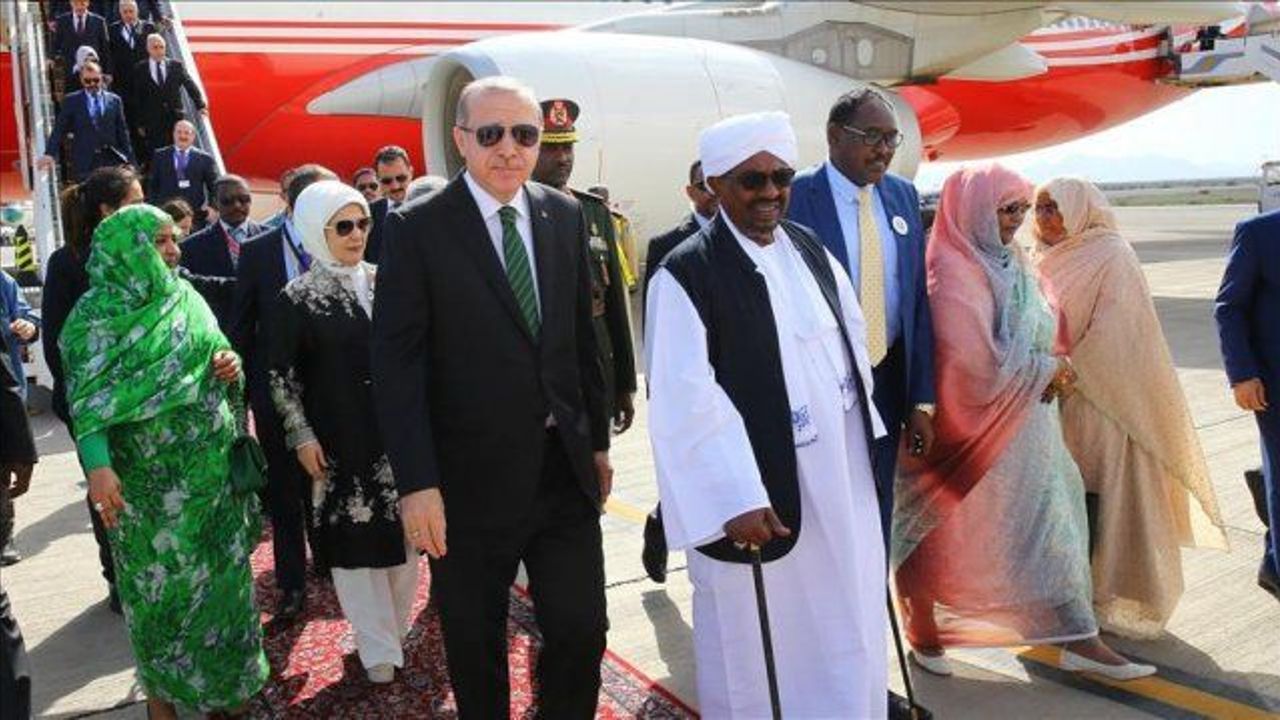President Erdogan's Africa visits herald 'new phase' in relations
A Turkish professor has hailed President Recep Tayyip Erdogan’s recent Africa visits as a sign of strong willingness to “stay in the continent”.

In an exclusive interview with Anadolu Agency, Sedat Aybar, the director of Africa Research Center (AFRIKAM) at Istanbul Aydin University, said Erdogan’s visits to African countries in 2017 had produced more significant symbolic outcomes compared to his visits there in previous years.
Aybar said a particularly noteworthy development was that Turkey had been given the renovation rights to the Suakin Island [in Sudan] upon Erdogan’s request.
“Hence, reconstructing this Red Sea island’s ruined Islamic monuments will be a significant manifestation that will help to substantiate the claim that Turkey is in Africa to stay. Consider this alongside [Turkey's] largest military base [abroad] that it opened in 2017 in Somalia,” he said.
Aybar sheds light on Turkey-Africa relations, which have recently begun to gain greater momentum with Erdogan’s visits to three African countries; Sudan, Chad, and Tunisia. As prime minister and president, Erdogan has visited a total of 23 African countries so far.
The Suakin Island made headlines with Turkey stepping forward to renovate the old Ottoman historical sites on it.
One of the oldest seaports in Africa, Suakin was used as a stopover by African Muslims on their way to the holy city of Mecca in Saudi Arabia for the Hajj pilgrimage. The Ottomans used the port city to secure the Hejaz province -- present-day western Saudi Arabia -- from attackers using the Red Sea front.
He said the island hosted many important Islamic structures -- mosques and shrines among them --, which are now in ruins.
“The island’s international status was settled with the foundation of the Turkish Republic in 1923. Once the proposed restorations have been completed, the island is expected to reawaken as an important stopover for the pilgrims on their route to Mecca,” Aybar added.
He also said the restoration of the historical buildings on the island would reactivate “Turkey’s clogged up memory chip vis-a-vis the continent,” particularly after the loss of its territories there nearly a hundred years ago.
New phase in Africa
Professor Aybar stressed that the visits also heralded a new phase in Turkey-Africa relations as the recent visits by Erdogan noticeably bolstered his earlier three-country East African tour in 2017, covering Tanzania, Mozambique, and Madagascar.
“Thus, it is important to note that this year’s visits are groundbreaking, solidly marking a new phase in Turkey’s dealings with the continent,” he said.
He noted that Erdogan’s 2017 visits were the logical sequential outcome of a strategy that had been accepted at the Second Turkey–Africa Summit held in Malabo, Equatorial Guinea in 2014.
“This strategy is based on the realities of international political economy, aimed at promoting a policy of bilateral agreements. In this sense, Turkey is set to develop mutual relations with individual countries in the continent,” he said.
'More realistic frame'
He pointed out that Turkey-Africa relations had now been established on a more realistic frame.
“There is now a visible departure from the romantic ‘Opening Up to Africa’ strategy to a more realistic ‘win-win’ approach,” he said.
Erdogan’s visit to Chad, he said, had triggered another significant development on a very sensitive issue as Chad had agreed to close down, or transfer the administrations of, Fetullah Terror Organization (FETO)-affiliated schools to the Maarif Education Foundation.
“In this regard, the removal of these networks is expected to help produce deeper and economically more grounded, informed, and realistic interactions with Africa,” Aybar added.
Anadolu Agency







